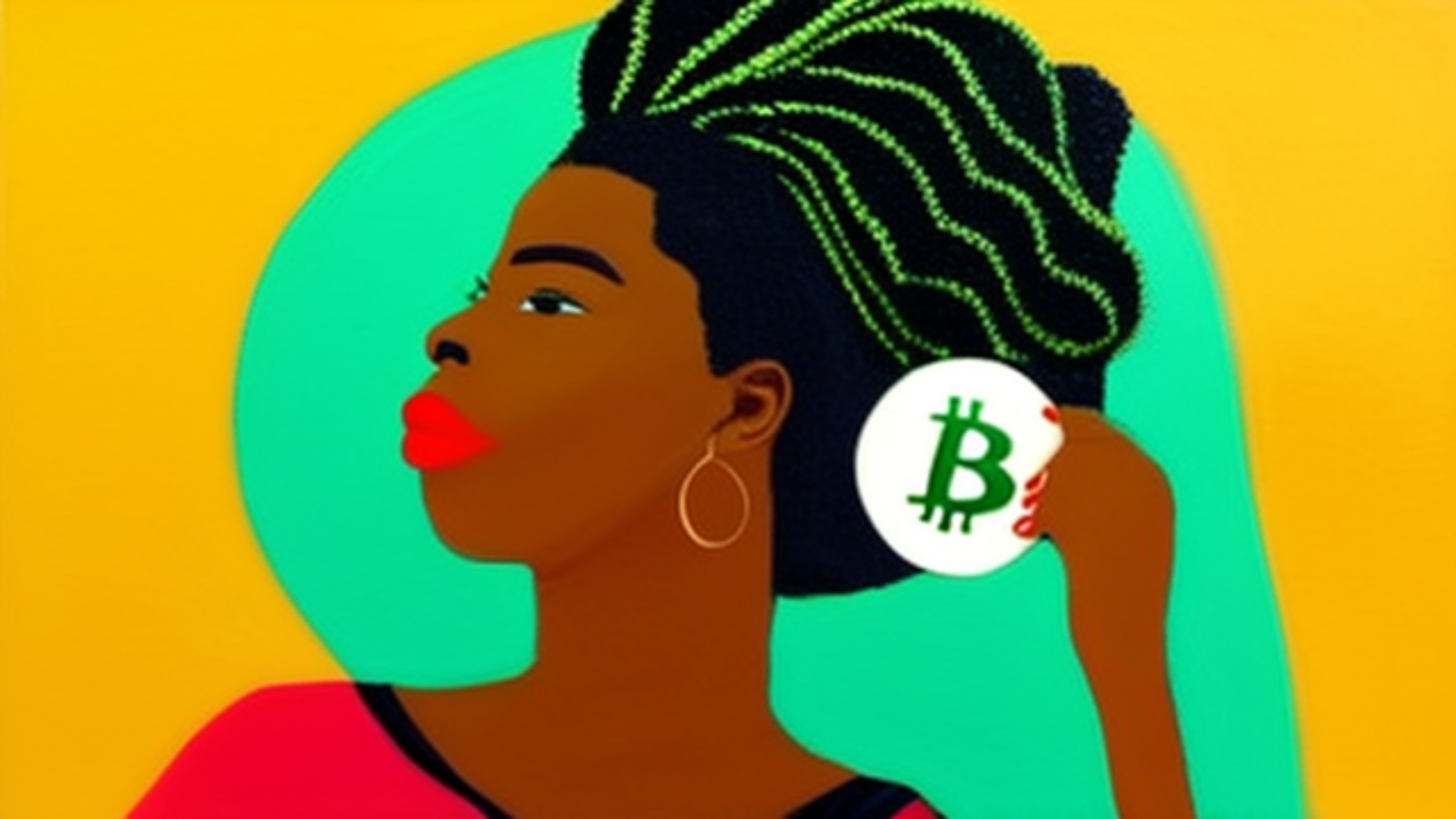Women in African Bitcoin Communities: An In-Depth Analysis
The blockchain technology has revolutionized the financial industry by creating decentralized networks that enable safe and secure transactions. However, the adoption of blockchain technology in Africa has been slow, with only a few countries leading the way. Despite this, women in African Bitcoin communities are making a significant impact in promoting blockchain technology and digital currencies. This article examines the role of women in African Bitcoin communities and highlights the leading influencers in this space.
1 Women in African Bitcoin Communities: An Overview
1.1 Women’s Participation in Bitcoin Communities
While the Bitcoin community in Africa is still male-dominated, there is a growing number of women who are becoming involved in the space. Women are participating in Bitcoin communities in various ways, including as investors, traders, developers, and entrepreneurs.
In some cases, women are starting their Bitcoin-related businesses, using the technology to solve local problems and drive economic growth in their communities. For example, there are now Bitcoin-based remittance platforms that allow African women to send and receive money quickly and affordably, which is especially important in areas with limited access to traditional financial services.
Despite this progress, women still face numerous challenges in the Bitcoin space. Gender bias and discrimination can limit women’s participation and prevent them from reaching their full potential.
1.2 The Importance of Female Representation in Bitcoin
The importance of female representation in Bitcoin cannot be overstated. Women bring a unique perspective and set of skills to the table, which can help to create a more diverse and inclusive community.
Moreover, research has shown that companies with a higher representation of women in leadership positions tend to perform better financially. This suggests that increasing the number of women in Bitcoin communities could have a positive impact on the ecosystem’s growth and development.
In addition, having more women in Bitcoin communities can help to address the gender bias and discrimination that women often face in the technology industry. By promoting diversity and inclusivity, we can create a more welcoming and supportive environment for all participants.
2 The Impact of Blockchain Technology on African Women
2.1 Increased Financial Inclusion for African Women
Blockchain technology has the potential to significantly increase financial inclusion for African women. With traditional financial services often being inaccessible or unaffordable, many women in Africa are excluded from the formal economy. Blockchain technology offers a decentralized and accessible alternative, allowing women to participate in financial transactions securely and easily.
For example, Bitcoin-based remittance platforms have enabled African women to send and receive money at lower fees and with faster processing times than traditional remittance methods. This has provided a lifeline for families who rely on remittances for their livelihoods.
Additionally, blockchain-based solutions can help to address issues such as corruption and lack of transparency, which can disproportionately affect women in Africa. By creating a secure and transparent platform for financial transactions, blockchain technology can help to reduce the risk of fraud and increase accountability.
2.2 Opportunities for Entrepreneurship and Financial Empowerment
Blockchain technology also presents significant opportunities for entrepreneurship and financial empowerment for African women. By providing a low-cost and accessible platform for financial transactions, blockchain technology can enable women to start their businesses, access credit, and build their financial futures.
Furthermore, blockchain-based platforms can enable African women to monetize their skills and knowledge in new ways. For example, a platform could be developed that enables African women to sell their crafts or digital products directly to consumers, without the need for intermediaries.
By providing opportunities for entrepreneurship and financial empowerment, blockchain technology can help to address gender inequalities in Africa and drive economic growth in the region.
3 Leading Influencers in African Bitcoin Communities
3.1 Leading African Women in Bitcoin
African women have played a significant role in the development of Bitcoin communities in Africa. These women have taken on various roles, from developers and entrepreneurs to advocates and educators, and have made a significant impact on the growth and development of Bitcoin in Africa.
- Alakanani Itireleng
Alakanani Itireleng, also known as The Bitcoin Lady, is one of the leading blockchain influencers on the African continent [1]. She is the founder of the Satoshicentre, a blockchain hub in Botswana. Alakanani lost her son to illness in the late 2010s, and in her battle to fund her son’s treatment, she heard about bitcoin as a way to accept international donations. Her passion for blockchain technology and its potential to transform Africa has earned her the title of “Bitcoin Lady” [1]. Alakanani has played a significant role in promoting Bitcoin in Botswana and other African countries, advocating for its adoption and educating people about its benefits.
- Anita Posch
Anita Posch is the founder of Bitcoin for Fairness, a project that encourages grassroots Bitcoin adoption projects in Africa [3]. She has traveled to several African countries to learn about the potential benefits of Bitcoin for the globally unbanked. Anita is passionate about the potential of Bitcoin to promote financial inclusion, particularly for women in Africa. Through her work, she has helped to promote Bitcoin adoption in Africa, highlighting its potential to transform the lives of millions of people.
- Doris Ojuederie
Doris Ojuederie is a blockchain expert and advocate for women in Africa [2]. She is passionate about using blockchain technology to promote financial freedom for African women. Doris believes that blockchain technology can empower women by providing them with access to financial services, such as banking and lending. She has been actively involved in various blockchain projects and is the founder of Blockchain African Ladies, a platform that aims to promote blockchain education and adoption among women in Africa.
3.2 Their Contributions to Bitcoin Communities
The contributions of African women in the Bitcoin community have been varied and significant. Women in Africa have been instrumental in driving adoption and education about Bitcoin, as well as advocating for its use in various industries.
Some African women have established Bitcoin-based startups, such as Nigerian entrepreneur Adedeji Owonibi, who founded the digital currency exchange, Convexity. Others, such as Nigerian tech entrepreneur and blogger, Emeka Okoye, have worked to educate people about the benefits of Bitcoin and blockchain technology.
In addition to entrepreneurship and education, African women have also played a role in advocating for the use of Bitcoin in various industries. For example, Elizabeth Rossiello, the founder of BitPesa, has worked to promote Bitcoin as a means of cross-border payments in Africa. BitPesa is a blockchain-based platform that enables users to send and receive money across borders quickly and at a low cost.
4 Challenges Facing African Women in Bitcoin Communities
Bitcoin communities are rapidly growing around the world, and Africa is no exception. However, African women are facing unique challenges within these communities that threaten their participation and success. In this article, we will explore two major challenges facing African women in Bitcoin communities: gender bias and discrimination, and limited access to technology and education.
4.1 Gender Bias and Discrimination
Gender bias and discrimination are significant challenges facing African women in Bitcoin communities. These biases are deeply ingrained in many societies, and they often manifest themselves in the form of sexist comments, harassment, and exclusion. African women who attempt to enter Bitcoin communities are often met with resistance and hostility from male members who view them as unwelcome interlopers.
In addition to outright discrimination, African women also face more subtle forms of gender bias. For example, they may be overlooked for leadership roles, or their contributions may be undervalued and underappreciated. These biases can make it difficult for African women to establish themselves in Bitcoin communities and to gain the recognition and respect they deserve.
4.2 Limited Access to Technology and Education
Another major challenge facing African women in Bitcoin communities is limited access to technology and education. Many African countries have limited technological infrastructure, making it difficult for women to access the tools and resources they need to participate fully in Bitcoin communities. Additionally, education levels may be lower in some areas, further limiting women’s ability to engage with Bitcoin technologies.
Furthermore, cultural norms and gender roles can prevent African women from pursuing education and technology-related careers. Women may be expected to prioritize domestic duties and caretaking responsibilities over professional pursuits, leaving them with less time and resources to devote to learning about Bitcoin and other emerging technologies.
5 Future Outlook for Women in African Bitcoin Communities
The future outlook for women in African Bitcoin communities is one that is filled with both promise and potential. While there are certainly challenges that must be addressed, there are also many reasons to be optimistic about the future of women in the Bitcoin space. In this article, we will explore two key areas that offer hope for women in African Bitcoin communities: the potential for women’s advancement in the Bitcoin space, and future initiatives that can support and empower women in these communities.
5.1 The Potential for Women’s Advancement in the Bitcoin Space
The Bitcoin space is still in its early stages, and as such, there is a great deal of potential for women to advance and excel in this field. As the technology continues to evolve and mature, there will be increasing demand for individuals with skills and expertise in Bitcoin and related areas. This presents a significant opportunity for women who are able to develop these skills and position themselves as leaders in the Bitcoin space.
Additionally, as awareness grows around the need for diversity and inclusion in the technology sector, there is increasing pressure on companies and organizations to prioritize diversity and to create more welcoming and supportive environments for underrepresented groups, including women. This means that there are likely to be more opportunities for women in Bitcoin in the coming years, as companies and organizations work to build more diverse and inclusive teams.
5.2 Future Initiatives to Support Women in African Bitcoin Communities
The Bitcoin space presents potential for women to advance, but also poses significant challenges that require addressing. To promote the participation of women in African Bitcoin communities, the future implementation of various initiatives is necessary.
One such initiative involves developing education and training programs tailored to women, with the aim of equipping them with the skills and knowledge required to excel in the Bitcoin industry. Moreover, mentorship programs could be established to connect women with experienced Bitcoin professionals who can offer guidance and support.
It will also be important to create more welcoming and supportive communities that value the contributions of all members, regardless of gender or background. This could involve working to eliminate gender biases and discrimination, and creating more opportunities for women to take on leadership roles and contribute to the Bitcoin community.
FAQs
A. Bitcoin is a decentralized digital currency that can be used for transactions without the need for intermediaries such as banks. It is significant for African women because it provides them with increased financial inclusion and entrepreneurship opportunities.
Let’s prioritize gender diversity and support women in African Bitcoin communities. This will ensure equal opportunities for all and promote growth and development. Challenges exist, but increased financial inclusion and entrepreneurship opportunities offer promising futures. Join us in advancing women in this space.


